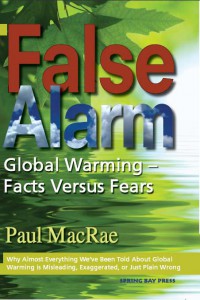Published by paulmacrae on 20 Aug 2022
Global warming myths: A ’sixth mass extinction’
Claims of a modern ‘human-caused biotic holocaust’ are based on computer models and guesswork, not scientific facts
BY PAUL MACRAE
In a popular textbook on writing creative non-fiction, the authors echo a familiar claim of global-warming alarmists: that thanks to our carbon emissions, we are creating a “sixth mass extinction” that will wipe out most of the planet’s animals and possibly humanity itself. The authors write:
Your [the reader’s] life has witnessed the eclipse of hundreds of thousands of species, even if they passed out of this world without your awareness. (The current rate of species extinction is matched only by that of the age of the dinosaurs’ demise.)1
This belief in a “current” mass extinction (usually blamed on climate change but also, much more plausibly, on habitat encroachment) is widely held and often cited by the environmental and anti-global-warming movements. For example, eco-crusader and former U.S. vice-president Al Gore, in his 1992 book Earth in the Balance, contended that we are losing 100 species a day, or almost 40,000 species a year.2 Gore took this figure from a book by biologist Norman Myers; where Myers got his numbers is discussed below.
Continue Reading »
